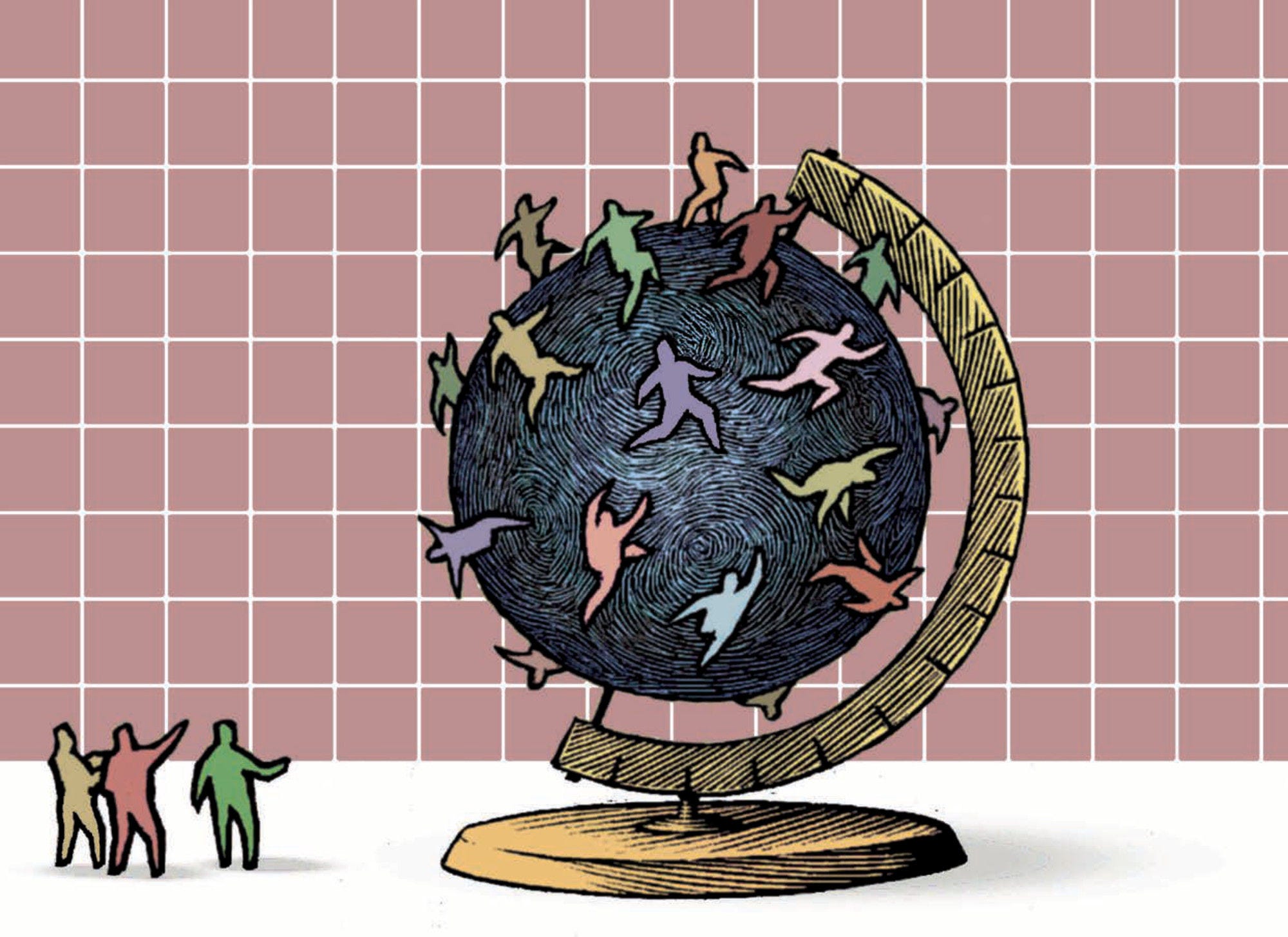In 2017, 47 000 new immigrants obtained a residence permit longer than 12 months in Poland (excluding EU citizens), 5.1% more than in 2016. This figure comprises 78.9% labour migrants, 5.4% family members (including accompanying family), 6.7% who came for education reasons and 8.9% other migrants.
Around 32 000 short-term permits were issued to tertiary-level international students and 1.1 million to temporary and seasonal labour migrants (excluding intra-EU migration). In addition, 21 000 intra-EU postings were recorded in 2017, an increase of 16% compared to 2016. These posted workers were generally on short-term contracts.
Ukraine, Belarus and China were the top three nationalities of newcomers in 2017. Among the top 15 countries of origin, Ukraine registered the strongest increase (15 000) and Armenia the largest decrease (‑200) in flows to Poland compared to the previous year.
In 2018, the number of first asylum applicants decreased by 20%, to reach around 2 400. The majority of applicants come from Russia (1 600), Ukraine (200) and Tajikistan (35). The largest increase since 2017 concerned nationals of Iraq (25) and the largest decrease nationals of Russia (‑500). Of the 2 700 decisions taken in 2018, 13.7% were positive.
Emigration of Poles to OECD countries decreased by 5.7% to 248 000. Three in five (60.3%) migrated to Germany, 10.1% to the United Kingdom and 9.6% to the Netherlands.
Significant amendments to the Act on Employment Promotion and Labour Market Institutions and the Act on Foreigners took effect in January and February 2018, transposing EU Directives and facilitating recruitment of foreign workers through labour migration channels. The possibility of imposing annual limits on different categories of temporary workers – on short-term and long-term permits – was introduced but has not been used. A shortage occupation list was introduced, decided by ministerial regulation. In 2018, 289 professions were listed, including mainly middle- and high-skilled professions, in the construction, I.T., transportation, and medical services sectors. From July 2018, occupations on the shortage list are exempt from a labour market test. From May 2018, a new type of civil law contract was introduced for listed harvesting services, that might be applied up to 180 days in a calendar year for a helper, both Polish and foreign. Remuneration must be specified but the contract is not covered by minimum wage rules.
Negotiations for the conclusion of bilateral labour agreements were proposed by the Philippines. However, due to the ongoing work on a new Migration Strategy, these are unlikely to be finalised before the end of 2019.
A December 2018 meeting of the Migration Council indicated that the new Migration Strategy for Poland will be prepared. The document will define the directions migration policy will take in the future and provide recommendations for individual ministries and other public institutions on implementation.
A draft amendment to the Act on granting protection to foreigners in Poland, announced in January 2017, is still under inter-ministerial consultation. The main change would be an introduction of an accelerated asylum procedure at the border for applicants lacking valid documentation and which would involve fewer guarantees and appeal opportunities for asylum applicants.
Starting in 2018‑2019, all foreign residents are eligible for comprehensive integration support, notably through the provision of information pertaining to integration, as well as free language and cultural adaptation courses for both adults and children enrolled in Polish schools. The government also introduced intercultural training for Polish teachers and social service employees. Two to three-year projects have been implemented by provincial governors in cooperation with NGOs, with co-funding from the EU Asylum, Migration and Integration Fund. From 2018, holders of a permit granting labour market access have been eligible for an allocation to cover school-related expenses for their children. As of 2019, this group is also eligible for housing allocations under the “Flat for Start” programme.
In 2018, a “Poland Prize” pilot was created to attract foreign start-up and innovative firms. The Polish Agency for Enterprise Development (PARP) appointed programme operators who scouted, assessed proposals and fast-tracked talent. A dedicated visa path is available as well as individual support. Grants of up to PLN 250 000 are available as well as networking support.
For further information:
www.emn.gov.pl
www.udsc.gov.pl
www.stat.gov.pl
www.mrpips.gov.pl
http://cudzoziemcy.gov.pl
https://fundusze.mswia.gov.pl/
